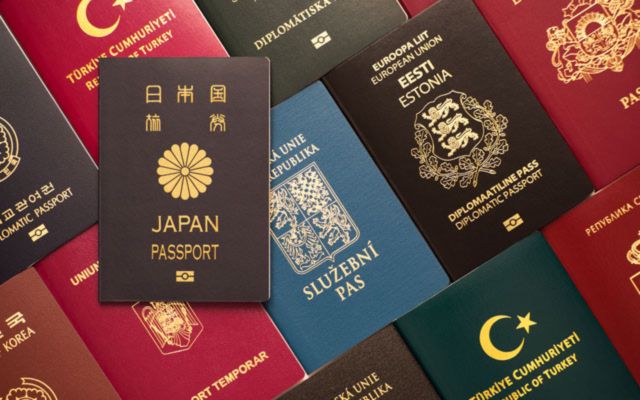
Blue Book Traineeship by The European Commission
About the traineeship
The European Commission proposes 2 types of traineeship: an Administrative Traineeship or a Translation Traineeship with the Directorate-General for Translation (DGT). The traineeship programme is open to all eligible candidates whatever their citizenship, regardless of their sex, race, colour, ethnic or social origin, religion or belief, membership of a national minority, disability, age or sexual orientation. You can find more about equal opportunities on this page. Trainees work all over the European Commission, its services and agencies, mostly in Brussels, but also in Luxembourg and elsewhere across the European Union. Subsequent career opportunities may vary between these different entities. The nature of your work will depend on the service you are assigned to. You may, for example, work in the field of competition law, human resources, environmental policy, translation, etc.
Living allowance for the traineeship sessions is ca. €1 300 per month.
Registration is open for the October 2023 session
Registration open from 4 January 2023 until 31 January 2023, 12:00pm (midday, CET)
Apply or check your application >> How to apply >>What does a trainee's daily work consist of?
- Attending and organising meetings, working groups, and public hearings
- Researching, drafting and editing documentation – including reports and consultations
- Answering citizens’ inquiries
- Supporting the management of projects
- Translating, revising translations or researching terminology
What do we expect from you?
- An open-minded approach to European issues
- An interest in learning about the Commission’s working methods
- Willingness to work in a multicultural environment
- To contribute to the Commission’s daily work from a fresh perspective
- A proactive attitude
Scientific traineeships are also available at the European Commission's Joint Research Centre (JRC).
Before applying
- Read carefully who can apply and the application procedure to avoid yourapplication being rejected
- Collect all the supporting documents which you need to submit with your application. You should fill in the application with the dates corresponding to these documents, otherwise your application could be rejected
- Do not wait until the last moment. Allow up to 3 working days for a response if you need (technical) help
Before submission
- Re-read your application carefully before submitting it
- Keep a copy of your application
While waiting for the results of the preselection, we invite you to contact the Permanent Representation of your country to the European Union and let them know you have applied.
Who can apply?
Eligibility
The traineeship programme is open to university graduates who:
- have completed a standard 3-year higher education degree (minimum EQF 6 level),
corresponding to a complete Bachelor’s cycle, or equivalent. Only if you have a certificate or
official confirmation from your university that you have such a degree will you be eligible to apply.
You will have to provide the following documents:
- diplomas or certificates with final grades clearly indicated
- and proof of minimum EQF 6 level. Find out more about EQF levels
- have no prior work experience of any kind, in excess of 6 weeks in any EU institution, body or agency, delegation, with Members of the European Parliament (MEPs), or Advocates General at the Court of Justice of the European Union (EUCJ)
- have a very good knowledge of languages:
- For the administrative traineeship – you must have a very good knowledge of two EU official languages, one of which must be a working language: English, French or German at C1 or C2 level as per the Common European Framework of Reference for Languages and a second one at B2 level at least as per the Common European Framework of Reference for Languages. For non-EU nationals, only one procedural language is required at C1 or C2 level.
- For the translation traineeship in the Directorate-General for Translation
(DGT) - you must be able to translate into your main/target language (normally your mother tongue),
from two other official EU languages (‘source languages’*).:
- your main/target language must be one of the official EU languages
- your first source language for translation must be a working language of the EU: English, French or German
- your second source language can be any of the official EU languages with at least B2-level proficiency
* At least one of the source languages you offer must be French, English or German. This is because
- the EU receives a large volume of translations and documents in French, English or German
- French, English and German are the languages that EU staff members most frequently use in their work
Most documents sent to DGT in languages other than French, English and German come from the Member States. Some documents come from international organisations and national associations that write to the Commission in English.
No points are awarded for the mother tongue and, therefore, no evidence of this is required.
If you have more than one mother tongue and wish to receive points for them, you can declare these in the ‘Other languages’ section of the application provided you can supply appropriate written evidence of this.
Additional points are given for:
- work experience
- international profile demonstrated through education, work or volunteering experience abroad, and aptitude to work in an international environment
- rare fields of study
If you are not selected you will have to submit your application again. The same process will apply each time but without guarantee that you will make it to the final stage.
Application procedure
The application procedure consists of three steps:
- Create a EU Login account or login with an existing one
- Complete and submit the application form along with your supporting documents
- If successful, you will be invited to check the openings published on VBB portal and apply for a chosen traineeship post.
Step 1: Create an EU Login or connect with an existing account
Register on European Commission Authentication Service (EU Login) to begin your application.
If you are a new user
EU Login
- click here to create an account
- fill in the sign-up form
- click 'submit'
- check your email account (including your spam folder) for confirmation
- in the email, follow the link to 'create your password'
- choose your password and submit it
- click 'proceed' to the application form
- use either the email or your ECAS username to login afterwards.Candidates for EC traineeships cannot login using electronic IDs.
Issues? Check 'Help for external users'.
For all questions regarding your registration with EU Login (European Commission's authentication service) see the EU Login FAQ page or contact eu-login-external-support@ec.europa.eu.
Step 2: Complete and submit the application form
a) Go to your candidate account, click on Send an application and choose the traineeship type to access the application form. Fill in the form section by section or jump from one section to another using the menu on the left-hand side of the page. Read and follow carefully the instructions provided for each section.
You do not have to fill in everything in a single session. Save your entries and log back in at any time to continue and submit your application. You can preview your application form at any time, before or after submitting it.
You cannot make changes to the application once it has been submitted.
Log in and complete each section of the application form following carefully the instructions provided.
You do not have to fill in the entire form in a single session. You can save your entries and log in later to make changes and submit your application using your username and password. You can also preview your application form in a printer-friendly pdf format at any time during the application period.
b) Upload your supporting documents.
You must attach the following supporting documents to your application form:
- Table of contents showing the list of documents in the PDF, point by point.
- A copy of your:
- valid ID card or passport
- university qualifications of studies completed before the deadline for applications
- Proof of
- university exchange programmes abroad, participation in EU or international programmes, seminars or workshops
- all declared language skills (other than mother tongue/s)
- all declared work experience
Please ensure that you upload all the justification documents to support every item declared on your application form, before submitting it. The pre-selection committee will reject your application if you do not provide adequate evidence of your declared studies, language knowledge, experience and other information stated on the form. Document only the items you have declared.
It is highly recommended to prepare your supporting documents well in advance to avoid missing the deadline. No additional documents or justifications will be admitted after the reception of the application.
Allow up to 3 working days for a response if you require (technical) assistance.
c) Once your application is submitted, you will need to wait for the results of its evaluation. You will be informed about the results via e-mail. In case of acceptance, you will be invited to apply to available traineeship positions.
Have you already submitted your application? Wait for the result of the evaluation phase! We will send the results via e-mail and publish them in your account. Make sure you check your account regularly.
If successful, we will invite you to apply to available traineeship positions.
Step 3: Apply for up to 3 traineeship posts in VBB
You will receive instructions to connect to Virtual Blue Book portal where Commission services and agencies propose various traineeship positions. The number of proposed positions matches the number of trainees per session. Carefully read the job description and the details of the post. You may mark as many positions as you like as favourites.
Candidates may apply for up to three posts. Applications for traineeship positions in VBB will be allowed for one week. Post openings will be unpublished as soon as the maximum number of applicants has been reached or after one week.
Please do not wait until the very last few days for applying.
Once there are enough applications registered for a specific post, the position will disappear from the list.
Selection process
From application to selection: how does the process work?
1. Receipt of applications
You register, complete and submit your application together with all supporting documents.
For traineeships beginning in October, applications open in January.
Applications for traineeships beginning in March open in July.
2. Assessment and eligibility check
Once the application period has ended, your application is evaluated on basis of academic profile, language skills and additional competences, skills and qualities, such as having an international profile, work experience, certificates and other achievements.
Applications not meeting eligibility criteria and formal requirements or unsupported or supported only partially by justification documents are rejected.
The highest scored candidates, around 3 000 successful candidates, are included into the Virtual Blue Book (VBB).
3. Selection
Candidates included in the Blue Book are invited to apply for up to three traineeship positions.
You will receive instructions to connect to Virtual Blue Book portal where Commission Directorates-General (DGs), services and agencies propose various positions for the nearest traineeship session. The number of proposed positions matches the number of trainees per session.
Carefully read the job description and the details of the post. You may mark as many positions as you like as favourites. You may apply for up to three posts in parallel.
Applications for traineeship positions in VBB will be allowed for one week. Post openings will be unpublished as soon as the maximum number of applicants has been reached or after one week. During the following two weeks, Directorates-General (DGs), services and agencies will select the most suitable candidates from all candidates who applied for their posts.
Certain Commission departments or agencies entitled to select trainees might contact their candidates directly for an informal interview, while others rely solely on the application forms.
If none of your 3 applications in VBB is successful, you still have a chance to be selected by any Service whose opening has not yet been closed.
After the first selection round, DGs, services and agencies will still have access to the complete list of unselected candidates. This second selection phase will continue as long as there are vacant positions or until the VBB is closed.
To get more information please visit official website.




